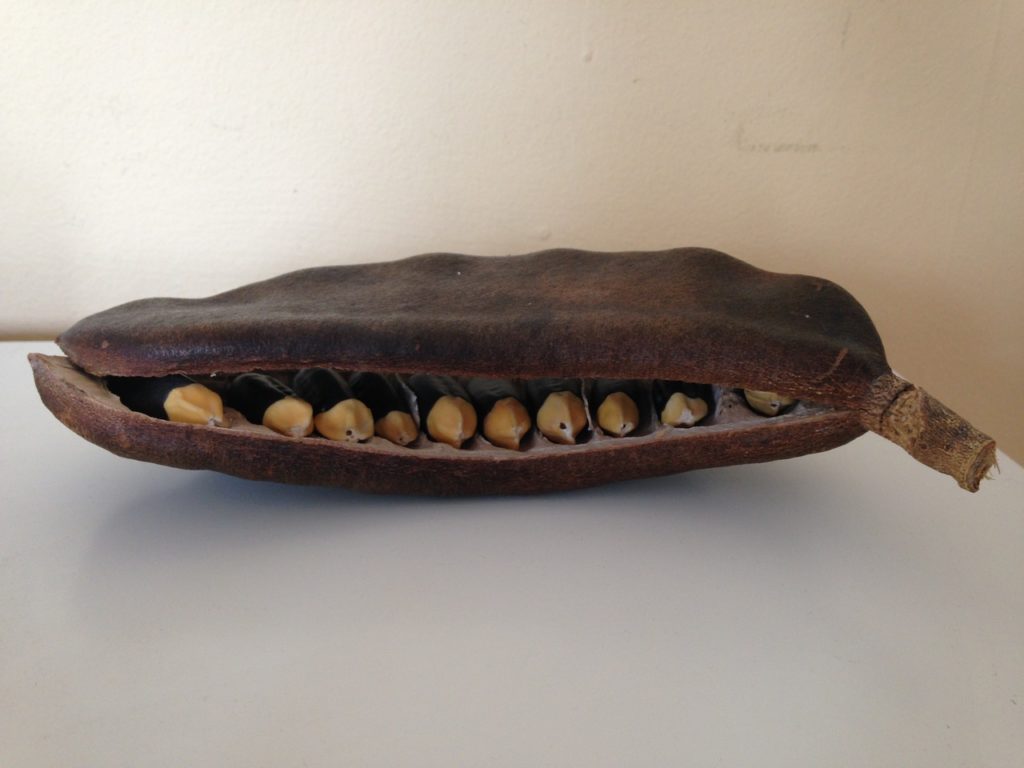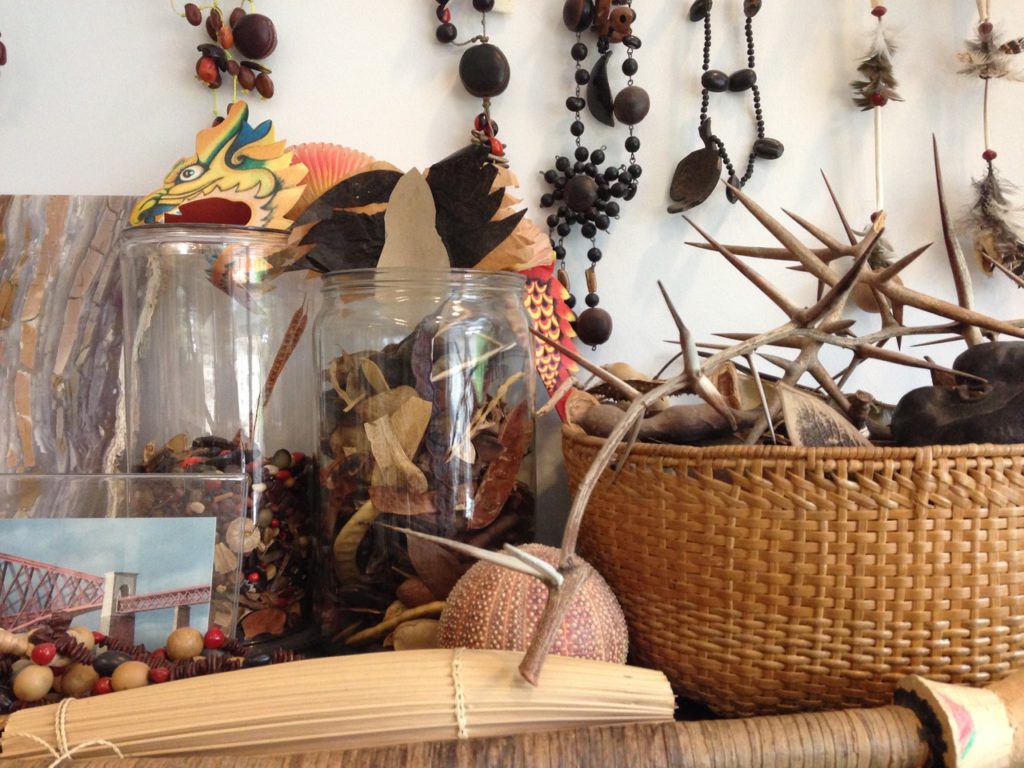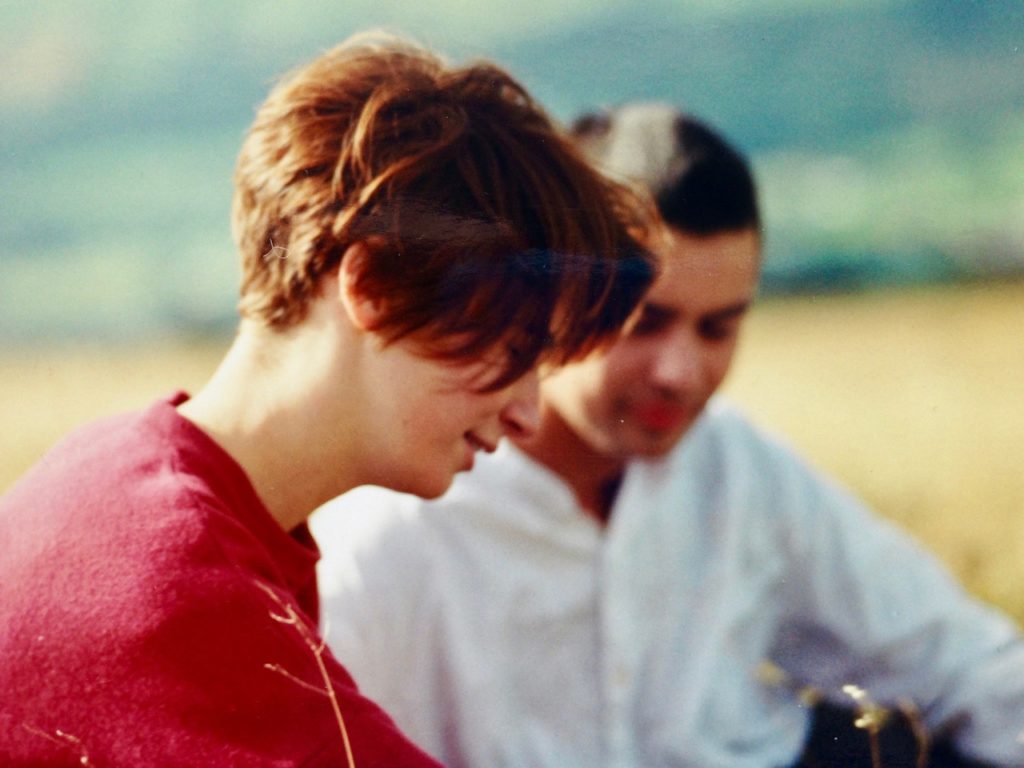Jill Hopper contemplates how the gift of a seed pod led to the writing of a book, two-and-a-bit decades later.

On the top shelf of my bookcase lies a seedpod, the size of a man’s hand, made of two flattish brown halves joined by a short stem. Inside are ten papery white compartments, each containing a large, shiny black seed. When I first saw the pod, half a lifetime ago, the tips of the seeds were a fleshy scarlet, but over the years they’ve turned a cracked and faded yellow.
It was my boyfriend Arif, travelling in Zimbabwe during his gap year, who found the mahogany pod – an object that held great significance for him. In 1994, a few weeks before he died, he gave it to me. We were twenty-four years old, crazily in love, about to lose each other for good.
In the wake of Arif’s death, numb and disbelieving, I clung to the mahogany pod like a talisman, promising myself I would write about him one day. But that day never seemed to arrive. The relationship, and everything it had meant to me, was shut away in a shoebox: love letters, a few photos, diaries, an unlistened-to mixtape. I began to construct a new life for myself, but even once I had married and had a family, I still didn’t feel ready to open the box.
One day in 2017, when I was clearing out my study ready to redecorate, I retrieved the mahogany pod from behind a stack of books. It looked dusty and neglected. As I wiped it clean and polished the seeds, an idea began to nag at me: that the pod had something to tell me, if only I could decipher its language. I tried an initial bit of digging online but this wasn’t the kind of research that could tell me much: I needed an interpreter. And I found one in the shape of Dr Gwilym Lewis at the Royal Botanic Gardens, Kew.
Nothing could have prepared me for what I saw when Dr Lewis opened the door to his office in the Herbarium. I was expecting an academic workspace, or maybe a laboratory. Instead, I saw a collection of wonders: tribal masks with blackened eye sockets and lips hanging from the walls; striped and spotted feathers sprouting from jam jars; a voodoo skeleton puppet lurking in one corner, a scarf knotted round its neck. On every available surface stood glass canisters, wooden bowls and woven straw baskets, brimming with hundreds of seeds in hues of brown, russet, black and scarlet.

Dr Lewis, or Gwil I should call him, because he has since become a friend, opened a world to me that spring morning in the Herbarium at Kew. He told me about the species that produced my seedpod: Afzelia quanzensis, a large and imposing tree with an umbrella-shaped crown and leaves that are copper coloured when they first unfurl. The tree bears alien-looking flowers and the red, fleshy part of the seed tempts monkeys and elephants to feast. The seeds are considered to be powerful charms that ward off evil; the locals thread them onto necklaces and shamans and witch doctors use them in their rituals.
As I listened, something began to stir in me. When I got home, I put the mahogany pod on my desk and began to write. I imagined the moment Arif had first caught sight of it, lying on the dusty forest floor. I thought about my younger self, standing in Arif’s bedroom, my hand outstretched as he placed a couple of the seeds onto my palm, where they lay, deep black and fiery red, like Jack’s magic beans. I traced how the pod had travelled with me to each new place I had lived, and recalled how, as a toddler, my son had loved to tip out the seeds and count them.
I was inching my way, slantwise, into the territory that I had been scared to enter directly. As the weeks passed, I often worked late into the night, the writing gathering pace and force. It swept me back to Osney, the willow-lined island in the Thames at Oxford, where Arif and I had lived for the nine short months of our relationship. It immersed me in the heavy rain of that autumn and winter, when the river rose higher and higher and threatened to flood. It gave me the courage finally to open the shoebox and read the letters and the diaries, rediscovering the moments of intense joy and longing and love that had flowed between us and never really been lost – just hidden. Slowly, slowly the book took shape.

After Arif died, the mahogany pod was the only possession of his I had left. At times it seemed a dry, dead thing, unable to offer me any kind of consolation. But now I know how much it contains. In giving me the mahogany pod, Arif gave me a book too, and the understanding that endings are also beginnings.
*
Jill Hopper’s memoir ‘The Mahogany Pod’ is out now, published by Saraband.